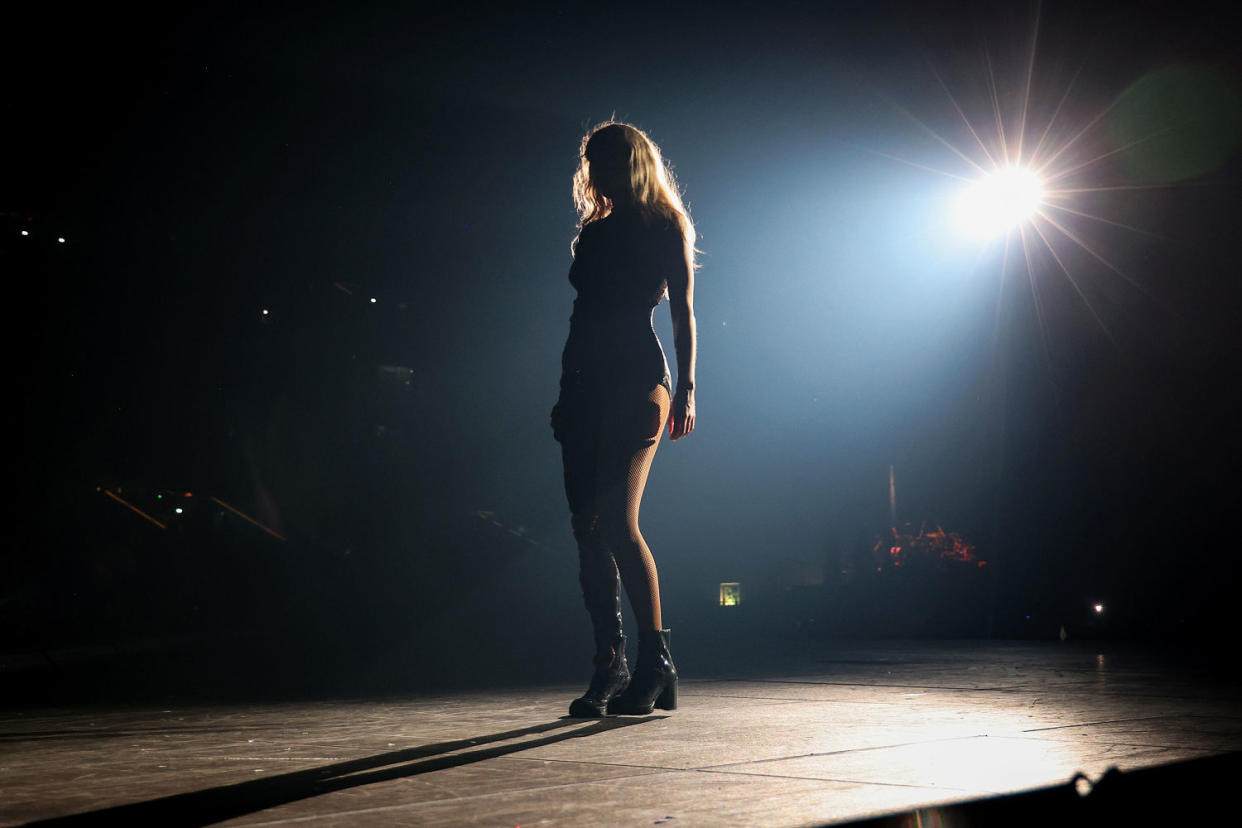Opinion | We shouldn't have to compete with bots to get into the next big concert — or New York restaurant

- Oops!Something went wrong.Please try again later.
As ticket sales and other appointments have moved online, so have scalpers, eager to help you cut the virtual line — for the right price.
Online scalping now extends to Broadway tickets, restaurant reservations, even immigration status meetings, DMV appointments, public camping sites and golf tee times, often at considerable markups. In the process, it is breaking the systems meant to ensure fairness and accessibility.
In New York — "the most competitive reservation market in the country," according to Eater — state lawmakers recently passed a bill to crack down on unauthorized third-party reselling of restaurant reservations. The bill is now sitting on Gov. Kathy Hochul's desk.
Legitimate sites such as Resy and OpenTable allow customers to reserve tables, but scalpers have been using bots to mass-reserve tables at sought-after restaurants in New York City, a problem highlighted by a New Yorker article this year. Restaurant industry insiders say similar operations have also been seen in other hot dining scenes, such as Los Angeles and New Orleans.
While ticket scalping normally helps solve problems of supply and demand, in the case of automated restaurant reservations, there is no real benefit to either the business or the consumer. Aside from occasional no-show fees, reservations are typically free. But reservations have been resold for anywhere from $50 to $1,000, says Melissa Fleischut, president and CEO of the New York National Restaurant Association, which supported the bill.
A similar problem happened during ticket sales for the U.S. part of Taylor Swift’s Eras tour in 2022. With millions of fans trying to buy online through Ticketmaster, the system crashed. While the fiasco gave Ticketmaster a black eye — at a time when it was already being investigated for an eventual federal antitrust lawsuit — it turned out that scalpers were buying large blocs of tickets and putting them on resale sites for thousands of dollars above their ticket prices. With demand outstripping supply, some tickets resold for as much as 70 times their face value.
In response, a coalition of independent venue operators and musicians called Fix the Tix has lobbied Congress to pass the Fans First Act, which would protect fans from price gouging, ban ticket-buying bots and end fraudulent ticket reselling, among other things. Another proposal from Reps. Frank Pallone Jr. and Bill Pascrell Jr., both of New Jersey, would ban speculative ticket-buying, in which scalpers sell tickets they haven’t yet purchased, as well as deceptively named sites, which trick users into thinking they’re buying directly from venues. A third congressional proposal, the TICKET Act, would require more disclosures and ban deceptive URLs on resale websites.
All of these bills would strengthen provisions of the BOTS Act, which President Barack Obama signed into law in 2016 because of concerns about bots’ reselling tickets to “Hamilton” and the Floyd Mayweather Jr.-Manny Pacquiao boxing match.
Economists say it’s important that any fixes don’t make ticket reselling too onerous, as it has some benefits. Columbia University economics professor Dan O’Flaherty argues that ticket scalping can even be helpful because it allows market forces to price events more accurately. A number of lucky Swift fans chose to resell their tickets, with one Jersey City mother reselling hers for $20,000 — five times what she paid for them — according to a Slate article.
“It’s a voluntary transaction between two people,” O’Flaherty said.
But as New York proves, rampant ticket scalping doesn’t hurt just consumers; it also hurts businesses. The restaurant association's Fleischut says that in New York City, restaurants were seeing no-shows for reservations jump from around 5% to as high as 30%. That meant lower revenue for the restaurant owners, reduced tips for the servers and missed opportunities for potential customers.
Saadhya Singampalli, who works in business development for the New York City restaurant group Unapologetic Foods, said scalping was particularly bad at its Southern Indian restaurant Semma in Greenwich Village. Though Semma has a Michelin star, the restaurant tries to fill its 60 to 70 seats each night with customers from all walks of life — what Singampalli calls “fun dining” rather than “fine dining.” However, Singampalli says, after the restaurant got as many as six cancellations a night, it started requiring upfront deposits.
The restaurant couldn’t even charge no-show fees in many cases, she says, as the reservations were made with fake credit cards, used gift cards or debit cards with zero balances.
“Ideally, we don’t want to have to do this, but it kind of forced us into creating a whole new policy on our reservations because of how bad the scalping and the bots were getting,” she says. “I think everyone should have a shot at dining and trying our food, not just the people with the highest assets or the most dollars to spend.”
Clearly, ticket reselling isn’t going away. But the rise of online scalping as a cultural phenomenon needs to be met with commonsense regulations and legislation. We shouldn't have to compete with bots to get into the next big concert — or restaurant or golf course.
CORRECTION (June 21, 4:49 p.m. ET): A previous version of this article misstated the name of the organization supporting a bill on restaurant reservations. It is the New York State Restaurant Association, not the New York National Restaurant Association.
CLARIFICATION (June 24, 2024, 4:01 p.m. ET): This article has been updated to reflect that the Justice Department antitrust investigation was already underway when Taylor Swift tickets went on sale in 2022.
This article was originally published on MSNBC.com

